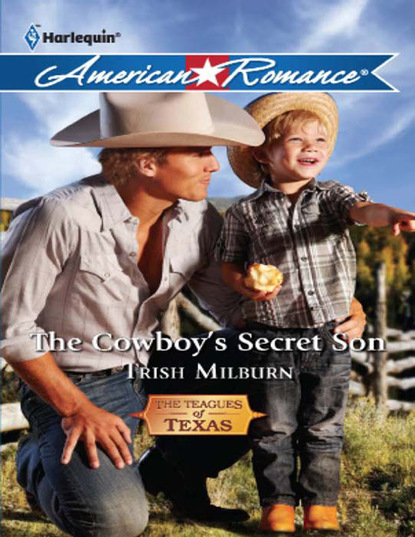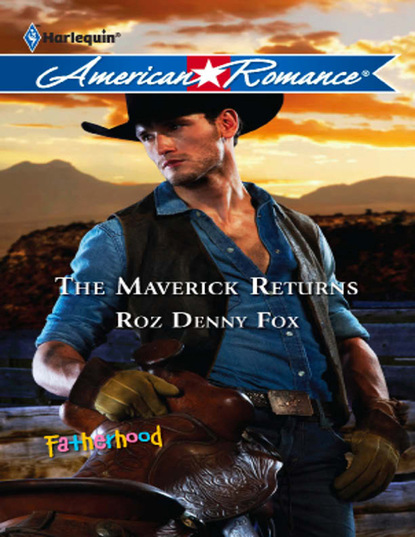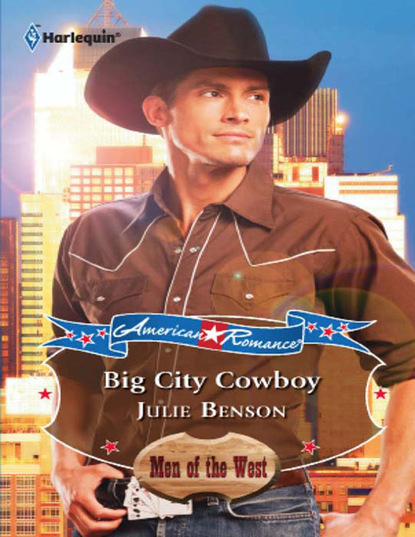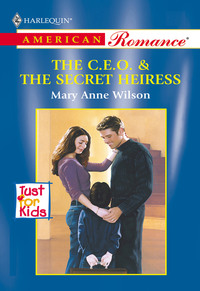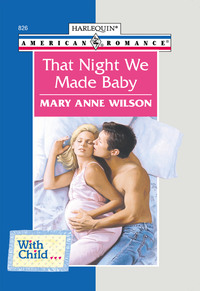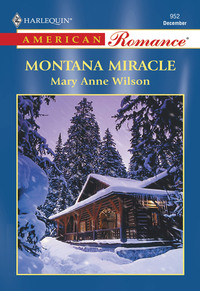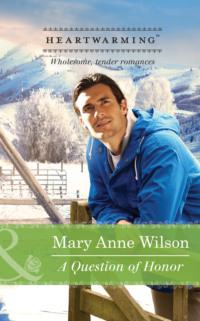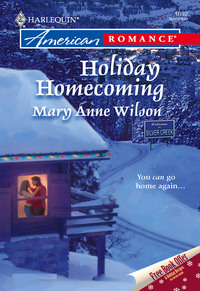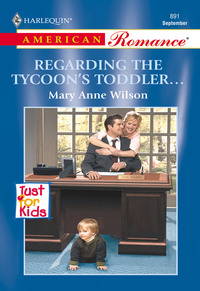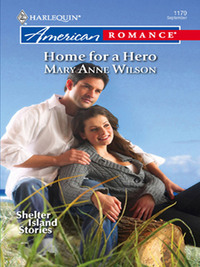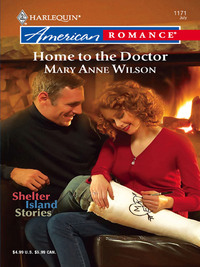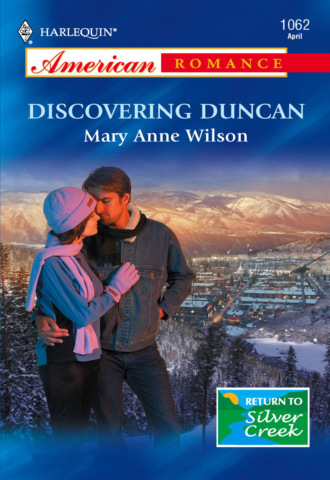
Полная версия
Discovering Duncan
She paused. “Sir, one more thing?”
“Of course.”
“He ran away, like some teenager. I don’t get it.”
“He didn’t. He left. He cut off everything, and he left. He told me he’d never be back, and I won’t accept that. This is where he belongs. He’s my only heir, the person who takes over when I’m gone. I need him back here.”
She had the feeling that his last sentence was his most truthful. He needed his son back with him. Not only for professional reasons but because he missed him. “Okay, Mr. Bishop,” she said. “I’ll be in touch.”
She carried the box down to the parking garage level and got into her car, an unmemorable blue compact. She put the box on the passenger seat, opened it and reached for the papers on top—newspaper clippings, a copy of a birth certificate, several photos.
Duncan Bishop was the spitting image of his father, only younger. He had the intense dark eyes. Every photo of the man had him looking right into the camera, as if he met the world head on and didn’t flinch. His features weren’t perfect, but the strong jaw and high cheekbones combined to make the man “interesting.” His hair was short enough, styled back from his face, a dark brown shot with gold highlights, and every photo had him in a business suit or tuxedo. In one picture she found the Barr woman with him, his arm around her, the woman smiling at someone nearby, the man looking at the camera, appearing faintly bored.
She sorted through, got to the newspaper clippings and wasn’t surprised to see they were all about the business, all about the father and son making a deadly team. All about the victories of the Bishops. She put them back in the box, then looked at the birth certificate. Duncan Ross Bishop. Son of Ellen Gayle O’Hara and Duncan Ross Bishop. His birthday was a month away, two weeks before Christmas. She glanced at the birthplace. Silver Creek, Nevada. She’d heard of the place, but only because of a posh ski resort located there, a very expensive, very in-demand and very private place. A place a Bishop could afford, and, coincidentally, Duncan Bishop’s home.
A lot of people went home when they “disappeared,” and she wondered if Duncan Bishop was that predictable. Would she find him at the fancy resort there, The Inn at Silver Creek? Maybe he was there partying. Or hiding.
Whatever the case, she’d find him. Her future depended on it.
Chapter Two
Lauren found Duncan Bishop in one week, and if there hadn’t been a weekend plunked down in there, she would have found him faster. She looked for hits on his credit cards, his social security card and bank withdrawals. The hits had been all over the country on a personal credit card that wasn’t associated with the company. She’d followed the pattern, and that pattern had ended up where she’d first thought to look—Silver Creek, Nevada. It had been almost too easy.
One week after she’d met with D. R. Bishop, she was picking up a rental car in Las Vegas, carrying no luggage and with a return flight to Los Angeles that night at ten o’clock. She drove north through the expansive desert, and finally climbed into the Sierra Nevada Mountains, heading up into rugged country. The one thing she hadn’t discovered was where in Silver Creek he was. He wasn’t at The Inn at Silver Creek north of the town. He wasn’t holed up in an obscenely expensive grouping of cottages that the rich and sometimes famous rented. He wasn’t sitting around a roaring fire in the evenings sipping cognac and rubbing shoulders with people like him. But he was in Silver Creek.
She’d found one place where the credit charges repeated themselves, a place called Rusty’s Diner. She found out that the diner was in the oldest section of town, the part that had survived from the early days when Silver Creek had been part of the huge silver-mining industry in the area. Rusty’s was owned by Dwayne Altman, sixty-five, with a bank balance that showed the diner did okay, but wasn’t in the same league as the trendy restaurants and cafés in the newer section of town.
She had no idea what Duncan Bishop was doing at Rusty’s, but when she had called the place and asked for him, the woman who answered had said, “He’s not in right now. Want to leave a message?” Lauren had hung up. She hadn’t been able to find anything in the records of the town with Duncan’s name on it, so she had to assume that he was either a customer who came in so regularly that they took calls for him there, or he worked there. Neither made sense to her. So she headed to Silver Creek to find Duncan Bishop, figure out what he was doing there and form a plan of action.
By the middle of the afternoon, she’d made it to Silver Creek, found Rusty’s Diner and was sitting across from it at a coffee shop with benches and tables outside on the wooden walkway that lined both sides of the street. She held an untouched cup of coffee, and waited. The diner across the street was rustic, but not in a fake way. It really was old, the wooden siding on it worn from time and weather, and the sign looked as if it had been there since the silver-mining days.
She glanced around at an area that was typical of any old mining town. It fanned out from the main street, a narrow two-lane thoroughfare, lined by brick and wooden buildings, its growth limited by the soaring mountains on either side of the pass. She could see skiing shops, antique stores, a museum to the north, a few bars, even some houses squeezed in here and there. Rusty’s sat between an art gallery that advertised “Silver Creek Primitive Art,” and a postal shipping center.
She glanced back at the coffee shop where she sat, and saw a brass plaque by the door declaring it had once been “the assay office for this whole territory.” Now it was a place that served “over 100 specialty coffees.” She sipped some of her own coffee, glanced across the street and saw the front door to the diner open. A large man in rough outdoor clothes—from a heavy navy jacket to worn Levi’s, heavy boots and a dark watch cap pulled low—stepped outside.
He was the right size, but she couldn’t get a good look at his face. So she watched him cross the wooden walkway, go to his right, and for a minute she was sure he was heading down the street. If he’d taken off, she would have followed, just in case she’d found Duncan Bishop.
Then luck was with her. He stopped at a large, new SUV, with Nevada dealer plates still on it. As he reached for the handle on the back cargo door, he paused and looked up, almost looking right at her. But his gaze swept past her, down the walkway to her right. He watched as a group of rowdy kids in expensive ski clothes came down the walkway. They stopped at a souvenir shop two doors down from where she sat, then the man went back to opening the door.
She sighed with relief because he hadn’t been looking at her, and because, with one glimpse of his face in the late afternoon sun, she knew she’d found Duncan Bishop. But he wasn’t the Duncan Bishop she’d seen in the pictures and clippings. This man looked like a rugged, blue-collar worker. He moved quickly, took two heavy boxes out of the new SUV, closed the door and headed back to the diner. She stayed where she was, waiting, but Duncan Bishop didn’t come back out.
She sipped a bit more of her now tepid coffee, then stood, tossing the paper coffee cup in a trash can by the table, then pushed her hands in the pockets of her plain navy jacket. Nothing about her stood out, except maybe her hair color and she hadn’t had time to do anything about that. So she opted for a knit ski cap she’d found in a supply store near where she’d parked the rental car. She had tugged it as low as she could to cover as much of her hair as possible.
Lauren hunched her shoulders into the cold, biting wind that seemed to have come from nowhere as she stepped down off the walkway and onto the parking shoulder. She waited for a car to pass, then she hurried across to Rusty’s. She pushed back the entry door and stepped inside. The diner was larger than it looked from the street, and was decorated in wood and stone.
Booths lined the front wall, and tables were covered with red-checkered tablecloths that surrounded a huge stone fireplace framed by more booths along the side wall. A bar was against the back wall, with the kitchen visible through an order window. The air was warm and smelled wonderful from a mixture of coffee and cinnamon. Soft music played in the background, Christmas music that was over a month early. As she stood absorbing the atmosphere, a waitress spotted her.
The thin, blond woman in jeans and a red-checkered shirt strode over to her in the entry and smiled. “Welcome, welcome.” She motioned to the almost empty restaurant. “Take your choice.”
“Thanks,” she said and moved to a booth by the front wall, where she could observe the whole layout without looking obvious.
She sank onto the plastic seat, took the menu the waitress offered and asked for a glass of water. When the waitress left, she picked up the menu, ready to use it as a prop so she could look over its edge. But she’d barely opened it when a man came out of a side hall off the entry. She had a pretty good idea who he was—Dwayne Altman, the owner.
He was the right age, medium height, a bit of a paunch under a gray-flannel shirt he wore with Levi’s, and his hair and full beard were a deep red. He spoke to the waitress and then made his way to the kitchen.
As Lauren watched him through the order window, the waitress returned to her table, and Lauren ordered a grilled-cheese sandwich to go and a cup of tea while she waited. As the woman headed back to put in the order, Lauren sat back in the booth and casually studied the rest of the room. Paneled walls, heavy beams overhead, rustic chandeliers that looked as if they were made of antlers and a huge deer head over the stone fireplace.
She looked away from the trophy and glanced at the entry. A four-shelf unit on the wall by the cash register held an assortment of mugs, all different and all carefully arranged. Above the shelves was a wood carved sign, Home Is Where You Hang Your Mug.
She glanced back at the kitchen, but the only person she could see through the half window was the cook. Not Duncan Bishop. She was beginning to think he’d ducked out another door she hadn’t been able to see from her vantage point. Then she saw him come out of the side hall. He was headed for the kitchen.
His watch cap was off, his jacket undone and he walked quickly, with long strides. He stepped into the kitchen, and as the door swung shut, the waitress appeared with her tea. She took it, but never drank it. She watched as Rusty and Duncan came out of the kitchen and walked toward the front of the diner.
They stopped at the greeting desk, with Rusty’s back to her and Duncan facing the restaurant. He looked up and his gaze met hers for a fraction of a second before turning away and refocusing on Rusty. She quickly looked down into her cup of steaming tea, but listened intently to their conversation.
“Hey, it sounds good to me and I appreciate you doing it,” Rusty was saying. “I wouldn’t know where to start dealing like that.”
“Okay.” Lauren glanced up from her tea at the sound of Duncan Bishop’s voice. It was deep like his father’s, a bit more rough, and carried easily in the almost empty restaurant. He was tugging at the sleeves of his jacket as he talked to the other man. “I’ll be back here no later than five p.m. on Thursday.”
“You watch yourself driving on that highway,” Rusty said. “And watch your back in Vegas.”
“I intend to,” Duncan said as he pulled his watch cap out of his pocket and put it on. Then he left. Through the windows, Lauren saw him stride across to the new SUV he’d gone to earlier.
He was leaving, going to Las Vegas, and she couldn’t follow him. She couldn’t get outside fast enough to get to her car and trail him. And she didn’t think, even if she could, that it would be a good idea. She didn’t know where he was going, but she knew he’d be back here on Thursday by five. Three days, days she could use to figure out how to approach him, how to get close enough to find out more about him and, in the end, get him to go back where he belonged.
She watched him stop just as he was about to go around the front of the SUV, turn and look back up the street. She twisted to see what he was looking at and saw the same kids who had made a commotion earlier. A gang of kids with time on their hands and money enough to get into trouble.
Three of them broke away from the main group of six or seven, and caught up with a girl who was probably in her late teens, very tiny and pretty, in a bright pink skiing outfit. The three were yelling at her, laughing uproariously, catching up quickly. She was obviously trying to ignore them, but she didn’t make it past Rusty’s before they were on her, circling her like a pack of hyenas right near Duncan and the SUV.
One of the guys, wearing loose, hanging pants, ski boots and a bulky down jacket, made a grab for her arm to stop her. He caught her by the sleeve, pulling her back and spinning her around. Even through the glass, Lauren heard her say, “Just let go of me, you creep!”
The other two were laughing, blocking her way if she tried to keep going. Then things changed. The one who had a hold on the girl moved backward, but not of his own volition. Duncan was there with a handful of the guy’s jacket, pulling him away from the girl as if he weighed nothing. The kid turned, his hand balled into a fist, then reconsidered doing something drastic when he found himself facing Duncan, who was a good eight inches taller than him. He twisted, and Duncan let him go, and when one of the other two started to say something, he hushed his friend with a slap on the kid’s upper arm.
Duncan was talking, his voice so low she couldn’t hear it at all, but the boys heard it. Duncan’s expression was unreadable, giving away nothing. Not anger, not disgust, or even aggression, but Lauren waited for something to explode. It never did.
Instead, Duncan was leaning toward the ring leader, using his size the way his father did. He got close, and all three of the hoodlums backed up, shook their heads in unison and, quite remarkably, walked away…quickly, without looking back once. The girl was watching them with wide eyes, then looked up at Duncan, touched his arm. Lauren could see her cheeks were flushed as she spoke to him.
Duncan shook his head as he said something to her, then, with a nod, he went back to his SUV. But he didn’t get in. He went around it and kept walking across the street, to the far side, and disappeared from sight. Dusk was approaching. Old-fashioned lamps lined the street and flashed to life. Twinkling Christmas lights framed display windows and outlined rooflines.
“Here you go,” someone said, and Lauren looked up at the waitress who was putting a take-out container on the table. “Anything else for you tonight?”
“No, no thanks,” she said.
“Thanks for coming in,” the waitress said, laying the bill on top of the take-out carton. Lauren paid and left. Stepping out into the chilly twilight, she hurried down the street to her rental car. Once she got the heat going she sat and ate the sandwich.
Duncan Bishop had walked off without his car. One of the charges on his personal credit card had been for Silver Creek Hotel. She’d looked it up, expecting to find a luxury hotel, but she’d been wrong. It was the original hotel in the town, built back in the 1800s, with only twenty rooms in all, and the charges had been recurring, every two weeks. From the address, she’d mapped it as two blocks north of Rusty’s. If he was on foot, chances were, he’d gone there. She wouldn’t attempt to watch him again. Not tonight.
She looked up the street to the north, where more lights were flashing to life. Ski slopes were defined by climbing brilliance on the west, some close and some a lot farther away. As the heat built to a comfortable level in the car, she mulled over everything she’d seen, heard and found out today. Nibbling on her sandwich, she let the facts settle and she gradually formulated a plan.
She started humming “Jingle Bells” under her breath as she pushed the napkins into the carryout box, then put the car in gear and tipped the vents so the warm air touched her face. She had the ten o’clock return flight, but she wasn’t going to make it. She had to see a few more things, then she could head back to Las Vegas. She got on the cell phone, had enough signal to get her call through and pushed her flight reservation back to midnight. Then she drove away from the curb and headed north.
She spotted the hotel on the left as she drove. It was a three-story brick building, with a steeply pitched roof. Tall, narrow windows lined the walls downstairs, and broader windows overlooked the street from the second floor. There was a parking area to the right, and white twinkling lights framed the entry with its half-wood and half-glass door. A sign was hung above the door: The Silver Creek Hotel, Est. 1858. Another sign in a front window seemed jarringly modern and announced Vacancies.
She kept driving, out of the older part of town, into a newer, more developed area. She passed a cluster of restaurants, then the public ski lifts. There was snow on the slopes, but nowhere else. The talk at the coffee shop had been complaints about no snow, how late the season was and how unsatisfactory it was skiing on machine-made snow. The shops at the foot of the lifts were closed, as well.
She kept driving up the street lined with small cabins and homes, and headed into a more upscale area. Here, the shops were high end, the restaurants fancy, and estates were hidden behind massive security gates and high fences. She could see some homes built up the mountains, their lights cutting through the growing darkness.
She turned to follow a bend in the road and the lights from the ski slopes were glowing into the night sky. She saw what she thought was a street to her left, with soft pillar lights framing it, and a wide, sweeping turnoff. But as she got closer, she could see it was an elaborate security entrance.
The pavement was made of cobbled stones, leading up to a lit gatehouse with a security guard standing by, watching the road. Behind him were six-foot-high carved wooden gates hung on massive stone pillars. Carriage lights lit the way and showed just a portion of the stone wall that ran off to the right and left. A rock arch swept over the top of the gates and, illuminated by hidden lights, brass letters spelled out The Inn at Silver Creek.
The place was completely blocked by gates, fences and the guard who looked in her direction when he heard her car approaching. When he saw she was in a cheap import, he lost interest and went back to looking at a pad of paper he had in his hand. Lauren drove a bit farther, never finding the end of the high stone fence, and never finding any life outside of it, either. She finally turned and retraced her route. When she got to the resort’s entry it was dark, and she watched as a low black sports car cut in front of her to get to the gates.
She slowed, watching the guard walk up to the driver’s window, glance inside, then wave the car through. The gates opened slowly, and for a moment Lauren could see beyond the barriers. She caught a glimpse of a lit road heading into the compound, going toward a series of sprawling buildings. Beyond, ski slopes glowed in the darkness.
She didn’t have any idea why Duncan Bishop was holed up at the Silver Creek Hotel, and not here. But she’d find out. She drove on until she was at the hotel and saw the phone number under the vacancy sign. She memorized it, then pulled into a parking spot a few buildings down and took out her cell phone. It only had one bar of signal, but she punched in the number and the call went through.
A woman answered and Lauren reserved a room for Thursday night, with an open end for departure. The woman asked if she knew there was no snow in Silver Creek, and when she assured her she did, the reservation was made. She put away her phone, then pulled back onto the street.
She went past Rusty’s Diner and the SUV was gone. But that was fine because she’d found a chink in Duncan Bishop’s facade of power and control, a very unexpected chink. It didn’t fit the image in the newspaper clips and stories that she’d read about him. Or from what his father said, or anyone else she’d asked about him. It didn’t fit at all, but she’d seen it with her own eyes.
Duncan Bishop was a rescuer. He’d rescued that girl from the gang of obnoxious punks. He hadn’t hesitated. Maybe he was more a controller than a rescuer, but whatever it was, it could work for her. If he liked being in control and rescuing maidens in distress, she’d be a maiden, she’d be in distress and she’d let him have control.
Thursday:
“SO, YOU WENT TO LAS VEGAS, not to gamble, not to have a good time, but to…”
“Business,” Duncan said to his passenger in the SUV as he drove into the mountains.
“Business,” Annie Logan repeated. “Business?”
Annie owned and ran the Silver Creek Hotel, where he stayed, and he liked her and her husband, Rick. They were nice, uncomplicated people who were generous and kind to a complete stranger. But they never stopped asking questions. That and his overwhelming need for solitude had been why he’d hesitated to let her ride along on his trip to Las Vegas.
But he’d finally agreed to take her so that she could visit with her sister while he took care of business. He hadn’t elaborated on what he was doing there, and wasn’t going to go into what he’d accomplished in Las Vegas. He’d go over that with Rusty when he got back. The meeting with a restaurant supplier he’d known for years, Colin Webb of Webb Food Services, had gone very well.
Colin was one of the few business acquaintances he’d had over the years who neither feared nor kowtowed to D. R. Bishop. That fact alone had earned him Duncan’s respect. On top of that, Colin was a fair man. When Duncan had contacted him last week about helping Rusty get a better deal on his supplies, the only thing Colin had said about him leaving Bishop International was “What took you so long?”
After meeting in Las Vegas to talk, they’d struck a deal for Rusty’s Diner. Colin’s company supplied the inn, and it wouldn’t take much more to make a stop at Rusty’s to take him supplies. The deal was struck, and Duncan was going back to Silver Creek with the good news that deliveries would start the week of Thanksgiving.
“You are not a talker, are you?” Annie asked as she reached for the newspaper on the seat between them.
He shrugged. “It depends.” He glanced at the woman in the next seat. Annie was in her early thirties, with dark hair she wore short and curly, little to no makeup, and a woman who wore sensible clothes and shoes. She had a terrific smile and a natural maternal instinct that, without having children, was directed at the people who stayed at the hotel.
“Well, you’re an enigma,” she said. “I told Rick that there’s more to you than meets the eye.”
“No, there isn’t,” he murmured.
He heard the newspaper Annie brought with her rustle, and she read, “Crisis in the national forests. Seems that people are killing the forests. I can’t imagine what Silver Creek would be without the forest.”
Neither could Duncan. The few days he’d thought he’d spend in Silver Creek had stretched out into three months, and he found he was starting to feel more and more comfortable in the town. He liked the pace, the people, especially the old-timers who were a far cry from the people who had surrounded him in Los Angeles. And he liked the land around him.
He flipped on the headlights of the SUV as he climbed higher into the mountains. It was barely four-thirty, but dusk was lying heavily all around. “Do you think there’s snow coming?” he asked for something to say.
“We always have snow by Thanksgiving,” Annie said. “And the weather report says we might get some activity. I sure hope so.”
He’d guess the temperature outside had dropped ten degrees, but the sky was painfully clear. Annie read more headlines, and he wasn’t particularly paying any attention until she said, “Business seems to be as depressing as the conditions in the forest.”


